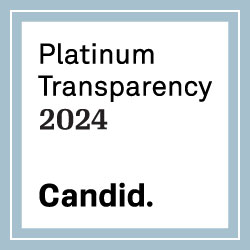SEPTEMBER 10, 2019 BY
Colorado Energy Office – 2019 Legislative Session Snapshot – May 2019
Energy Efficiency
House Bill 19-1231 – New Appliance Energy and Water Efficiency Standards
– Updates and adopts standards for new equipment sold in Colorado and requires that certain appliances, plumbing fixtures and other products sold for residential or commercial use meet energy efficiency and water efficiency standards that will be phased in over 3 years.
– Sale of a non-complying product is punishable through a civil enforcement action by the Attorney General.
House Bill 19-1260 – Building Energy Codes
– Requires local jurisdictions to adopt one of the 3 most recent versions of the International Energy Conservation Code (ICC) , at a minimum, when updating any other building code.
Electric Vehicles
Senate Bill 19-077 – Public Utility Implementation of an Electric Vehicle (EV) Infrastructure Program
– Authorizes a public utility to provide charging stations as a regulated or unregulated service.
– Requires utilities to file an application for a program to support transportation electrification every 3 years starting in 2020 that may include investments or incentives, rates or programs, and customer outreach and education.
– Provides guidance to the PUC on utility EV program evaluation.
Senate Bill 19-239 – Addressing Impacts of Changes Related to Commercial Vehicles
– Requires Colorado Department of Transportation (CDOT) to convene a group of stakeholders affected by the adoption of new and emerging transportation technologies and business models to develop policy recommendations to address resulting impacts.
– CDOT will then undertake a rule-making as needed to effectively implement these recommendations.
– Any fees adopted must incentivize multi-passenger trips and use of EVs, and revenues will go to multimodal transportation and EV infrastructure.
House Bill 19-1159 – Modifications to the Income Tax Credits for Innovative Motor Vehicles
– Modifies amounts and extends the number of years of existing income tax credits for the purchase or lease of EVs or hydrogen fuel cell vehicles; current law phases it out at the end of 2021 – this bill extends it through the end of 2025.
– Allows ride-sharing companies to claim the full tax credit if vehicles are provided to drivers under a short-term rental program.
House Bill 19-1198 – Powers and Duties of the Electric Vehicle Grant Fund
– Provides more flexibility in how the EV Grant Fund is used by allowing funds for administration of charging station grants and to offset charging station operating costs.
– Requires that these funds be continuously appropriated to the Colorado Energy Office.
House Bill 19-1298 – Electric Motor Vehicle Charging Station Parking
– Authorizes the owner of a plug-in EV charging station to install a sign that identifies the station.
– If the sign is installed, a person is prohibited from parking in the space if the vehicle is not an EV and using the charging station for parking if the EV is not charging.
– Penalty for a violation is a $150 fine and a $32 surcharge.
Climate/Utility Policy
Senate Bill 19-096 – Collect Long-term Climate Change Data
– Requires the Air Quality Control Commission to collect greenhouse gas emissions data from greenhouse gas-emitting entities, report on the data, including a forecast of future emissions, and propose a draft rule to address the emissions by July 1, 2020.
Senate Bill 19-181 – Protect Public Welfare Oil And Gas Operations
– Protects public safety, health, welfare and the environment in the regulation of the oil and gas industry by modifying the oil and gas statute and clarifying, reinforcing and establishing local governments’ regulatory authority over the surface impacts of oil and gas development.
– Directs the Air Quality Control Commission to review its leak detection and repair rules and to adopt rules to minimize emissions of methane and other hydrocarbons, volatile organic compounds and oxides of nitrogen.
Senate Bill 19-236 – Sunset Public Utilities Commission
– Directs the Public Utilities Commission (PUC) to promulgate rules that require an investor-owned utility (IOU) to file with the PUC, for the PUC’s approval, a distribution system plan regarding the utility’s anticipated distribution system investments.
– Requires an IOU, when submitting a filing to the PUC that includes a proposed retirement of an electric generating facility, to include a workforce transition plan that provides estimates of workforce transitions that will occur as a result of retiring the electric generating facility.
– Directs the PUC to conduct an investigation of financial performance-based incentives and performance-based metric tracking to identify mechanisms for aligning utility operations and investments with various public benefit goals including safety, cost efficiency and emissions reduction.
– Requires the PUC to open a nonadjudicatory proceeding to conduct a survey of public utility retail rates and consider recommendations for providing rate relief in geographic areas with retail rates that are materially greater than the state average.
– Directs the PUC to evaluate the cost of carbon dioxide emissions in certain proceedings (resource planning, energy efficiency planning, beneficial and transportation electrification, renewable energy standard) related to a public utility subject to the PUC’s jurisdiction and to promulgate rules to require those public utilities, when submitting filings, to include the cost of carbon dioxide emissions related to the evaluation of electric generation and heating resources.
– Starting in 2020, the PUC is required to establish a base cost of carbon dioxide emissions in an amount not less than $46 a ton and shall modify the cost thereafter based on escalation rates established by a federal interagency working group.
– Directs the PUC to promulgate rules requiring generation and transmission utilities to submit resource plans to the PUC for approval.
– Directs the PUC to open a docket exploring whether utilities should join an energy imbalance market or regional transmission organization.
– Directs Xcel Energy to submit a plan for PUC approval that will achieve an 80% reduction in greenhouse gas emissions below 2005 levels by 2030 and lays out criteria for approval; create a securitization bonding mechanism to reduce the costs associated with early plant retirement; and creates an opportunity to fund workforce and community transition.
House Bill 19-1003 – Community Solar Gardens Modernization Act
– Amends the current statute authorizing community solar gardens (CSGs).
– Increases the maximum size of a CSG from 2 megawatts to 5 megawatts.
– Removes requirement that a CSG subscriber’s identified physical location be in the same county as, or a county adjacent to, that of the CSG, while retaining the requirement that it be within the service territory of the same electric utility.
House Bill 19-1261 – Climate Action Plan To Reduce Pollution
– Sets Colorado statewide goals to reduce 2025 greenhouse gas emissions by at least 26%, 2030 greenhouse gas emissions by at least 50% and 2050 greenhouse gas emissions by at least 90% of the levels of greenhouse gas emissions that existed in 2005.
– Specifies that Air Quality Control Commission will take into account in implementing policies and promulgating rules to reduce greenhouse gas pollution, including the benefits of compliance and the equitable distribution of those benefits, the costs of compliance, opportunities to incentivize clean energy in transitioning communities, and the potential to enhance the resilience of Colorado’s communities and natural resources to climate impacts.
– Directs AQCC to consult with the PUC with regard to rules that affect the providers of retail electricity in Colorado.
House Bill 19-1272 – Housing Authority Property In Colorado New Energy Improvement District
– Clarifies housing authority participation in Colorado Commercial Property Assessed Clean Energy (C-PACE), a program administered by the Colorado New Energy Improvement District (NEID), through which an owner of eligible property, including residential properties having at least 5 dwelling units, may finance energy improvements.
House Bill 19-1314 – Just Transition From Coal-based Electrical Energy Economy
– Creates the Just Transition Office in the Division of Employment and Training in the Department of Labor and Employment.
– Provides benefits to coal transition workers to enable them to support themselves and their families and access education and training for high-quality jobs.
– Provides grants to eligible entities in coal transition communities that seek to create a more diversified, equitable and vibrant economic future for those communities.
– Requires an electric utility that proposes to retire a coal-fueled electric generating facility to submit to the office a workforce transition plan at least 90 days before the retirement of the facility.






